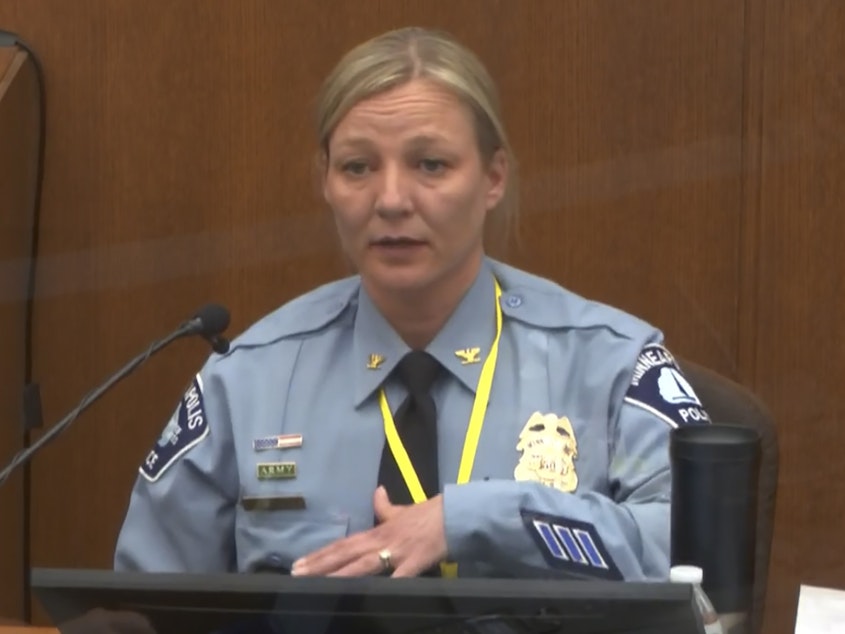Former Training Commander On Chauvin Neck Restraint: 'That's Not What We Train'

Inspector Katie Blackwell, who commands the Minneapolis Police Department's 5th Precinct and used to run the department's police training, methodically told the court on Monday that former officer Derek Chauvin went against authorized training when he used his knee on George Floyd's neck to pin him to the ground.
After describing the training that Chauvin, whom she said she's known for 20 years, has received throughout his career, Blackwell said his technique — kneeling on Floyd's neck while the Black man lay on his stomach — was not a maneuver the training operation taught.
"Is this a trained technique ... by the Minneapolis police department when you were overseeing the training?" prosecutor Steven Schleicher asked.
"It is not," Blackwell responded
"Why not?" Schleicher probed.
"Per policy, a neck restraint is compressing one or both sides of the neck, using an arm or a leg. But what we train is using one arm or two arms, to do a neck restraint," she said.
"And how does this differ?"
"I don't know what kind of improvised position that is. So that's not what we train," Blackwell said.
She also told jurors that officers are trained about the dangers of keeping a person in a position that can limit the person's ability to breathe — a concept called "positional asphyxia."
"How long have you known about the dangers of positional asphyxia?" Schleicher asked.
"We were taught about positional asphyxia all the way back to my academy," Blackwell said, adding that her time with the department overlaps with the length of time Chauvin has also been there.
Officers are taught to put a person on their side "as soon as possible," when a person is "under control," Blackwell said. [Copyright 2021 NPR]

